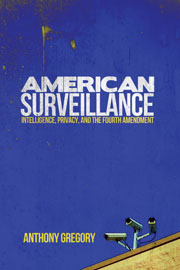The USDA is blocking an American slaughterhouse that wishes to voluntarily test its beef for mad cow disease so it can sell meat to Japan.
Creekstone Farms, a slaughterhouse in Kansas, has spent $500,000 to create a mad cow testing facility to comply with Japan’s tougher regulations. Forbidden from testing and shut off from its Japanese market, the company loses $200,000 in sales every day, and it has already been forced to layoff fifty workers.
Unfortunately for the people at Creekstone Farms, the USDA will not permit such testing, because the agency does not consider the testing “scientifically warranted,” and it worries that competing slaughterhouses may appear unsafe by comparison.
Americans who believe that the USDA protects consumers from tainted beef might find themselves scratching their heads. Why would the USDA interfere with a business taking extra precautions to prove the safety of its product to its customers?
Historically, government regulation of beef has often had less to do with common sense or genuine health concerns than with the state-corporate favoritism inherent in a highly regulated economy.
A myth exists that federal inspection of meat began at the turn of the twentieth century due to a public outcry for safer meat. Fueled by writers such as Upton Sinclair, Americans heard horror stories of tainted beef being sold to the public. In truth, tainted meat was not at all a pervasive problem. It was businesses, not the public, who first sought regulation in the industry. Small meatpackers in the late nineteenth century pushed for legislation to undercut bigger meatpackers, who had begun using new refrigeration techniques to provide safer and cheaper meat. A few years later, big meatpackers cheered on the passage of the Meat Inspection Act of 1906 as a way of creating the illusion that the quality of their meat had risen from the fictitiously low standards “documented” in Upton Sinclair’s novel The Jungle.
Given that USDA regulations historically have been contaminated by favoritism, how can we best promote food safety? In the case of a genuine epidemic, the best way for America, Japan, and other countries to ensure meat quality is to let the free market operate.
When three children tragically died and many more became ill from E. coli contamination in Jack in the Box hamburgers in 1994, the fast food chain completely revolutionized its operations to prove its products were safe—not because the government compelled it, but to save its reputation. Jack in the Box’s profits have gone up and it has had no serious problems in the ten years since the tragedy.
In fact, the entire industry scrambled to improve testing and research. The National Cattlemen’s Beef Association began funding research and developed new testing standards now adopted by most of the beef industry.
Some insist that a business will only clean up its act after a disaster, but no preemptive government policy will guarantee one hundred percent safety. Even with a $1.5 billion annual budget, the USDA did not prevent the Jack in the Box tragedy and it fails to save the lives of several thousand Americans who die from undercooked meat every year.
If America had a true free market in beef testing, standards may indeed rise sharply as the current levels of contamination would be considered intolerable. The USDA only serves to protect politically favored slaughterhouses over less powerful ones, such as Creekstone Farms, all while providing Americans with a false sense of security. Just as telecommunications deregulation resulted in lower prices and better phone service, getting the government out of meat testing would prove beneficial.
When the U.S. government responds to Japan’s testing regulations by creating more regulation, as they have done in the Creekstone Farms case, the economies and liberties of Americans as well as foreigners suffer. Government frequently derails the efforts of businesses to improve their products, while rewarding favored businesses with its rubberstamp of approval. That the USDA will not allow Creekstone Farms to test for mad cow disease demonstrates that the agency would rather protect the status quo than the physical health of consumers or the economic health of America’s small farmers.
The USDA and Cow Disease Madness
Anthony Gregory is a former Research Fellow at the Independent Institute and author of American Surveillance.
Agriculture RegulationDefense and Foreign PolicyGovernment and PoliticsInternational Economics and DevelopmentThe Nanny StateTrade
Comments
Before posting, please read our Comment Policy.








